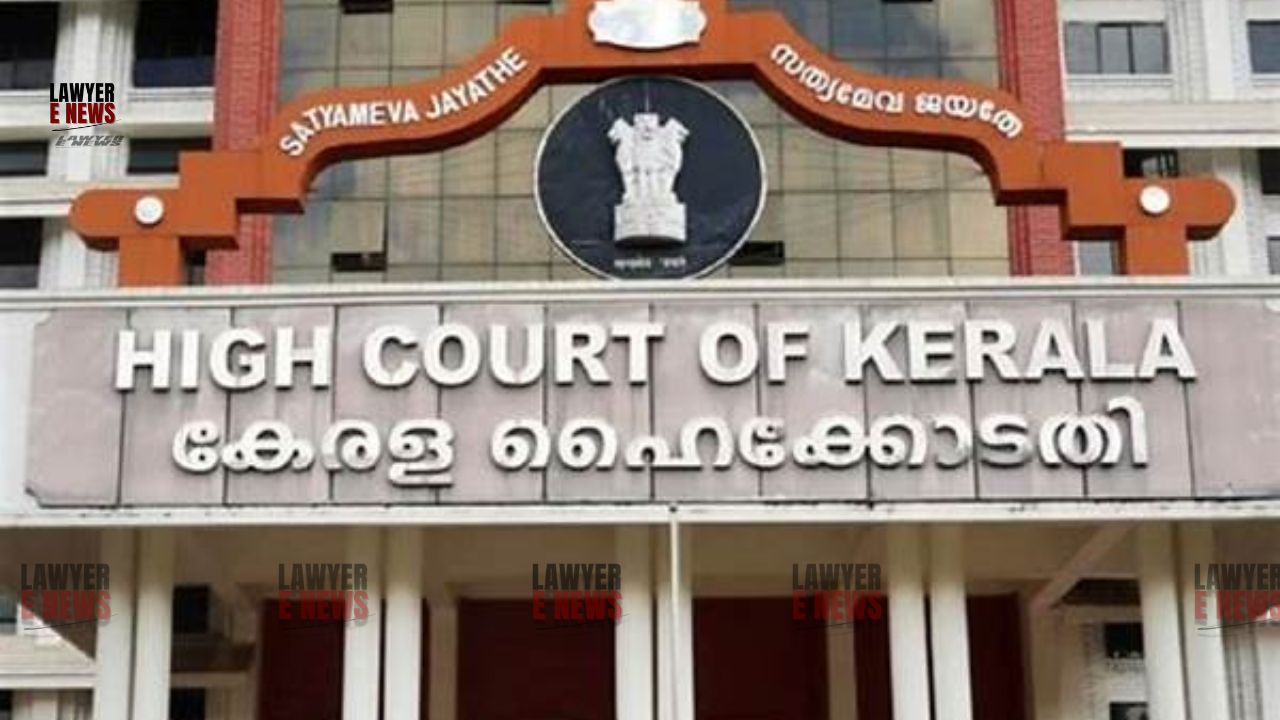-
by Admin
15 February 2026 2:16 AM



Kerala High Court in a latest judgement overturned a trial court’s conviction of Venugopal under Section 302 IPC for the murder of Sindhu. The court acquitted the accused, emphasizing the lack of sufficient and reliable evidence to uphold the conviction. The judgment underscores the need for conclusive circumstantial evidence in criminal cases, setting a precedent for how courts may treat similar cases in the future.
Background of the Case: Venugopal, the brother-in-law of the deceased Sindhu, was convicted by the Additional Sessions Court-IV, Kollam, for her murder. The incident occurred on January 13, 2005, when Venugopal allegedly entered Sindhu's home, administered liquor-laced juice to her son (PW2), committed rape, and later murdered Sindhu by chopping her with an axe and strangling her. The case was based on circumstantial evidence, as no direct witnesses were available. Venugopal confessed to the police, but this confession was not signed or recorded under Section 154 of the CrPC, raising questions about its admissibility.
Whether the prosecution had succeeded in proving that Venugopal murdered Sindhu.
Whether the conviction and sentence by the trial court were sustainable, given the evidence presented.
The prosecution relied heavily on circumstantial evidence, including testimony from family members and forensic reports. However, the defense argued that the evidence was inconsistent and insufficient to conclusively establish Venugopal's guilt.
Details of the Judgment: The High Court, led by Justices P.B. Suresh Kumar and C. Pratheep Kumar, analyzed the circumstantial evidence presented by the prosecution, referring to the Supreme Court's rulings on cases based on circumstantial evidence, such as Hanumant Govind Nargundkar v. State of M.P. and Sharad Birdhichand Sarda v. State of Maharashtra. The court reiterated that for a conviction based on circumstantial evidence, the chain of events must be so complete that it leaves no room for doubt about the accused's guilt.
The court found several discrepancies in the prosecution's case:
Inconsistencies in PW2's testimony: The son of the deceased was only seven years old at the time of the incident and his testimony was inconsistent with earlier statements. He initially did not mention key allegations against Venugopal, which were only raised in later statements.
Lack of forensic evidence supporting the rape claim: Although spermatozoa was found in the vaginal swab, the handling and chain of custody for DNA evidence were questionable. The court noted that the blood sample allegedly matching the accused’s DNA was still available in court years later, casting doubt on whether the sample used for testing was indeed his.
Contradictory witness statements: Family members of the deceased testified that Venugopal had a history of harassment toward Sindhu, but her husband, PW1, and other close relatives denied any knowledge of such animosity.
Absence of key physical evidence: The court pointed out the absence of any signs of scuffle or external injuries on Sindhu's body, which weakened the rape and murder narrative.
The defense's theory that Sindhu’s husband had returned home and was involved in the incident was also given some consideration, especially in light of the gaps in the prosecution's case. Additionally, the presence of another individual, Muthuswami, who had left town after the incident, was raised but never investigated by the police.
The High Court concluded that the prosecution had failed to establish the guilt of Venugopal beyond reasonable doubt. The court set aside the conviction, stating that the circumstantial evidence was too weak to support the conviction. The judgment reinforces the principle that mere suspicion or incomplete evidence cannot be grounds for conviction, particularly in cases relying solely on circumstantial evidence.
Date of Decision: October 14, 2024
Venugopal v. State of Kerala
